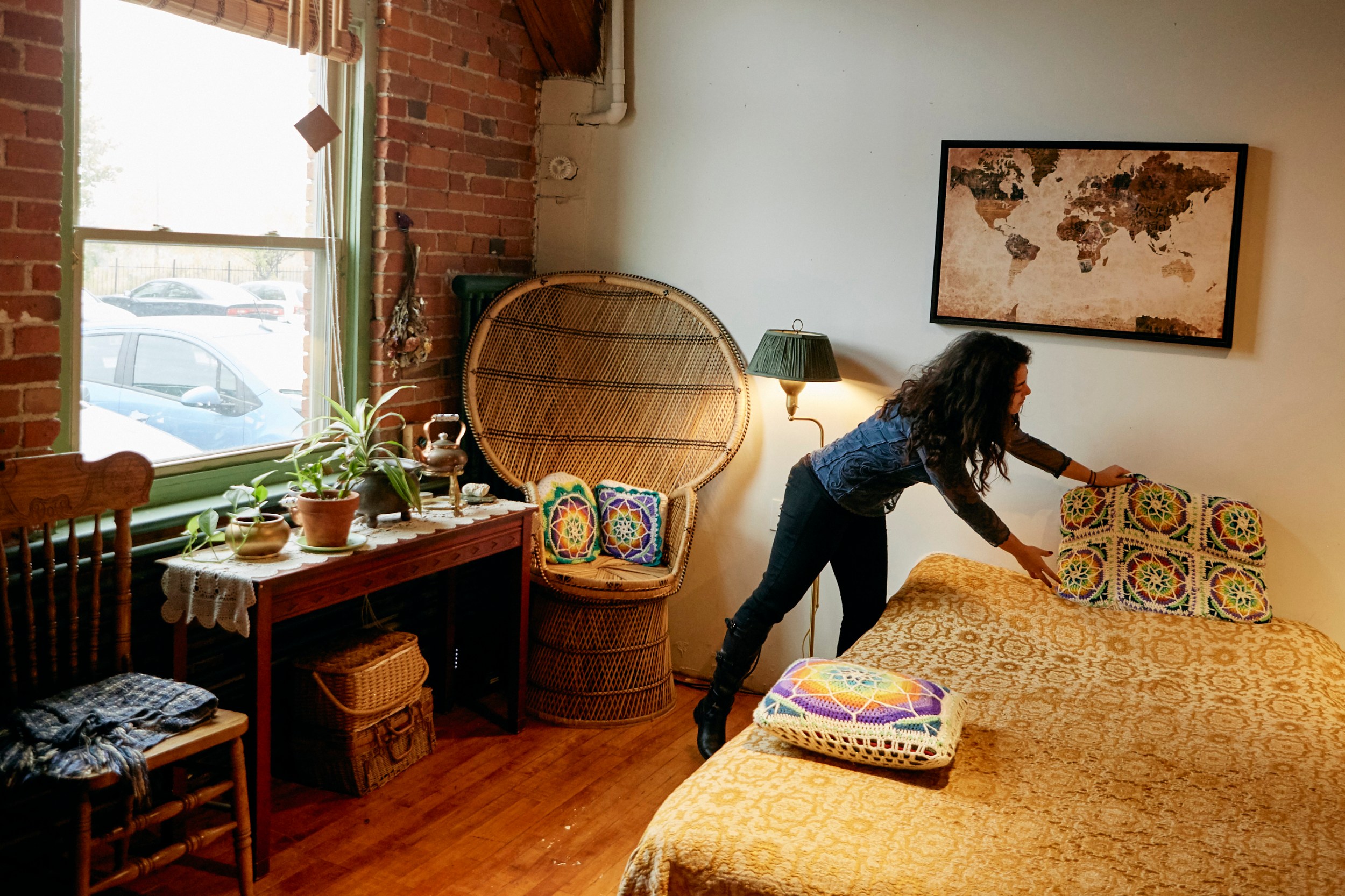New survey: Half of Hosts use Airbnb income to afford rising living costs
Key Takeaways
- A new survey of 1,800 South African Hosts and guests on Airbnb highlights how the cost of living crisis is driving people to become Hosts on Airbnb.
- The typical South African Host earns just over R26,000 - equivalent to approximately one months additional pay for the average income earner - by renting their space on Airbnb.
- The survey shows that the rising cost of living is also pushing guests to seek more affordable family travel on Airbnb.

Key Takeaways
- A new survey of 1,800 South African Hosts and guests on Airbnb highlights how the cost of living crisis is driving people to become Hosts on Airbnb.
- The typical South African Host earns just over R26,000 - equivalent to approximately one months additional pay for the average income earner - by renting their space on Airbnb.
- The survey shows that the rising cost of living is also pushing guests to seek more affordable family travel on Airbnb.
A new survey of 1,800 South African Hosts and guests on Airbnb highlights – for the first time – how the cost of living crisis is driving people to become Hosts on Airbnb. Half of Hosts across South Africa say they host to afford the rising cost of living, and over a third say the additional income helps them make ends meet.
The typical South African Host earns just over R26,000 – equivalent to approximately one months additional pay for the average income earner – by renting their space on Airbnb. The vast majority of Hosts are regular people, and 4 in 5 South African Hosts share only one listing. Almost 1 in 5 South African Hosts work in either education, healthcare or hospitality. Two-thirds are women and one quarter are over 60.
The survey shows that the rising cost of living is also pushing guests to seek more affordable family travel on Airbnb. 3 in 5 guests say booking on Airbnb saved them money and one third said they specifically chose an Airbnb over other types of accommodation to save money.
As well as being affordable, almost one fifth of guests said that Airbnb offered a more local travel experience. A third said their Airbnb listing enabled them to experience an area they probably wouldn’t have visited and over half say they took up their Host’s recommendation of a local business or place to visit. This helps disperse guests and benefits beyond hotel districts to local families and their communities. A 2021 report from Genesis Analytics highlighted Airbnb’s contribution to the inclusive growth of tourism, with travel on the platform contributing more than R8 billion to the economy supporting around 22,000 jobs in 2020, a crisis year for local tourism.
“As the cost of living crisis bites, people are looking for new ways to boost their income. Airbnb was born during an economic crisis to help people afford their homes and 15 years later, more families across South Africa are doing the same. “Tourism in South Africa has enormous potential for inclusive growth. Through the Africa Academy and by investing in infrastructure programmes that connect people to our global network, we’re investing in the next generation of tourism entrepreneurs and helping to ensure that tourism in South Africa benefits everyone.”
Velma Corcoran, Regional Lead for Middle East Africa at Airbnb
The new survey data comes just a week after Airbnb launched its biggest upgrade in a decade, including a new way to search that will help guests discover millions of homes and destinations they never knew existed, all while making travel less concentrated and spreading guests and benefits to more families and communities across the globe. Last year, Airbnb announced a new three-year commitment in South Africa to address barriers to becoming a tourism entrepreneur, and to help rebuild a more inclusive and resilient domestic tourism economy.
Based on a survey of 1151 Hosts and 685 Airbnb guests booked between June 1, 2021 and Dec. 31, 2021 and surveyed between February 17, 2022 and March 31, 2022. Margin of error under 2%.